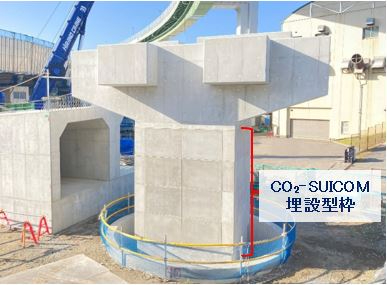J-STORIES ー 日本で何世代にもわたって受け継がれてきた食や暮らしの知恵には、地球にやさしい技術の開発や未利用資源の活用につながる沢山のヒントが詰まっている。そうした日本の「伝統知」を世界に伝えようと、国際的な教育・啓発事業に取り組んでいる企業がある。

このプログラムでは、対象になる地域の現場で1週間から10日間のフィールドスタディーを行い、参加者の言語や専門に合わせて、バイリンガルでかつ地域文化に精通する専門家が講師兼案内人として付き添う。その土地の文化や技術を学ぶだけでなく、参加者が帰国後に日本の伝統知を地元でどのように生かすことができるかを共に考える。
これまでのプログラムでは、建物の外壁にレンガをよく使う海外と異なり、日本で伝統的に使われてきた土壁や土塀がどのように作られるかを説明したり、欧州ではほとんど食用にされない海藻を日本ではどのように食材として調理するかを紹介するなど、幅広いテーマを取り上げている。
こうした伝統知の共有は、国ごとの文化や習慣が壁になり、国境を越えて共有するには難しい面もある。齋藤由佳子さんはJ-Storiesの取材に対し、「一方の国では無視されているけれども、別の国や地域では非常に活用されているものがたくさんある」と話す。
「その地域で無視され、使用されていないものを活用するには見方や考え方をかなり変える必要があり、インスピレーションがないとできない」。
齋藤さんが設立・運営するGENは日本とイタリアに拠点を持ち、両国の伝統知を世界に発信する活動を続けている。

いま、斎藤さんが取り組んでいる新しい事業は、日本の発酵技術を活用したバイオトイレの開発だ。排泄物を肥沃な肥料として活用する江戸時代の知恵と日本の発酵技術を掛け合わせた資源循環再生技術の実用化をめざす。
このプロジェクトでは、排泄物とトイレットペーパーを段階的に発酵させることで「複合発酵」させて完全に分解する。浄化されて出た水には窒素やリン酸などの栄養素が残っているため、液肥として農業に使うことができ、土壌改良の効果も実証されている。最終的には、飲めるレベルまで浄化された水を生成したいという。
バイオトイレの事業主体になっているのは、GEN Japanが中心となって組織したJINOWA(斎藤さんが代表)。資源循環や再生に関心を持つ企業の国際的なコンソーシアムで、土のインテリアを作るMatteoBrioni SRL(イタリア・ゴンザーガ)、日本の伝統的な土壁の左官技術を継承する蒼築舎(三重県四日市)など、土にこだわる企業が参加している。
.jpg)
齋藤由佳子さんは、JINOWAが土に着目する理由について、土は地球の環境改善を考えた時に最も重要なものだと指摘する。土壌中の微生物の量をバランスよく増やし、肥沃させ循環させることで、地球が本来持つ回復力を高める目的だ。
JINOWAによるバイオトイレの試作品は、来年3月頃に石坂産業の敷地内で建設が始まる予定だ。
記事:澤田祐衣 編集:北松克朗
トップ写真:SeanPavone / Envato
この記事に関するお問い合わせは、 jstories@pacificbridge.jp にお寄せください。
***
***
本記事の英語版は、こちらからご覧になれます。




_smallthumbnail.jpg)















![[PODCAST] 如何打造成功的新創企業社群(第2集)](https://storage.googleapis.com/jstories-cms.appspot.com/images/1748493203370business-man-holding-light-bulb-social-network-2024-10-31-22-37-36-utc_smallthumbnail.jpg)


